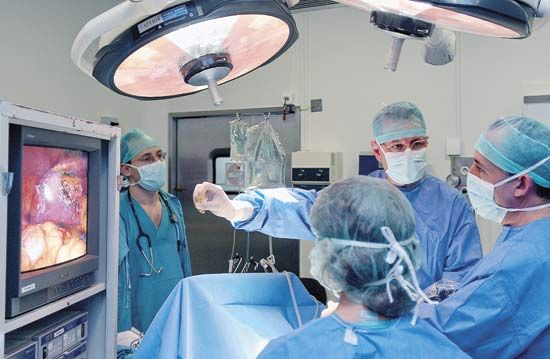Residents Still Gain Exposure to Open Surgeries Replaced by Minimally Invasive Procedures
The use of minimally invasive laparoscopic surgery has become so widespread that some surgeons are concerned those in training have insufficient exposure to the open procedures it has replaced.

Initially introduced as a less-invasive approach to cholecystectomy in 1989, laparoscopic surgery has become the mainstay of minimally invasive surgery (MIS) in the United States. Its use has become so widespread that some surgeons are concerned those in training have insufficient exposure to the open procedures MIS has replaced.
Researchers at the University of North Dakota School of Medicine and Health Sciences examined this issue by studying intra-abdominal procedures performed by residents graduating from US general surgery residency programs between 2000 and 2011.
Their retrospective analysis employed data from the Accreditation Council for Graduate Medical Education (ACGME) national resident case log reports, specifically examining the average number of cases per graduating chief resident in the categories of appendectomy, inguinal/femoral hernia repair, gastrostomy, colectomy, anti-reflux procedures, and cholecystectomy.
The researchers found that graduating residents performed that same total number of major cases in 2000 and 2011, which came as a shock. Restricting residents to an 80-hour workweek — a change that took effect in 2003 — was expected to reduce residents’ exposure, but it appears that this did not happen.
Nevertheless, the number of MIS procedures increased significantly in all procedure types, except anti-reflux surgery. The increases ranged from 26% for cholecystectomy to 1,011% for colectomy.
The researchers noted a concurrent decrease in the number of open procedures. The rates of open appendectomy, open colectomy, and open anti-reflux procedures continue to decrease; however, the decline in the rates of open hernia repairs and open gastrostomies seems to have plateaued. The researchers said the effect of those declines in “open cases in surgical training and practice remains to be determined.”
Though newer, less-invasive technologies in endoscopic surgery, natural orifice surgery, and robotics will obviate the need for older techniques, there will always be a role for open surgeries.
